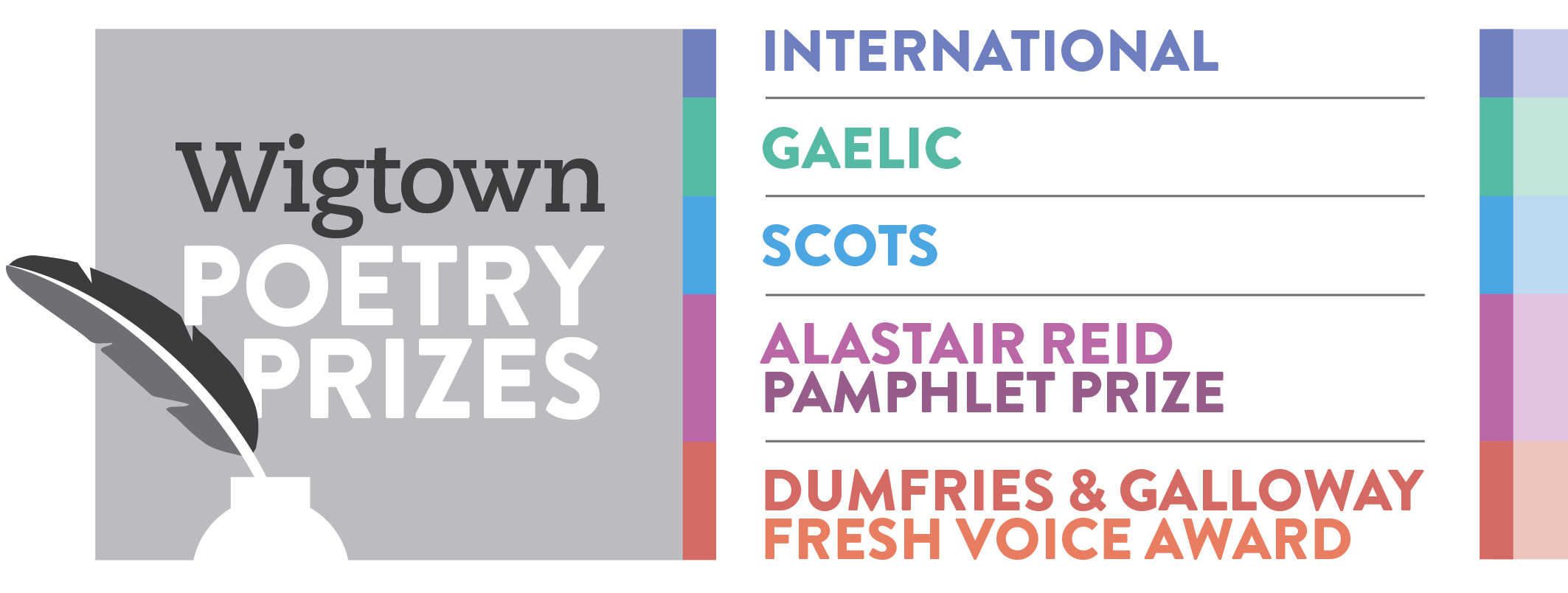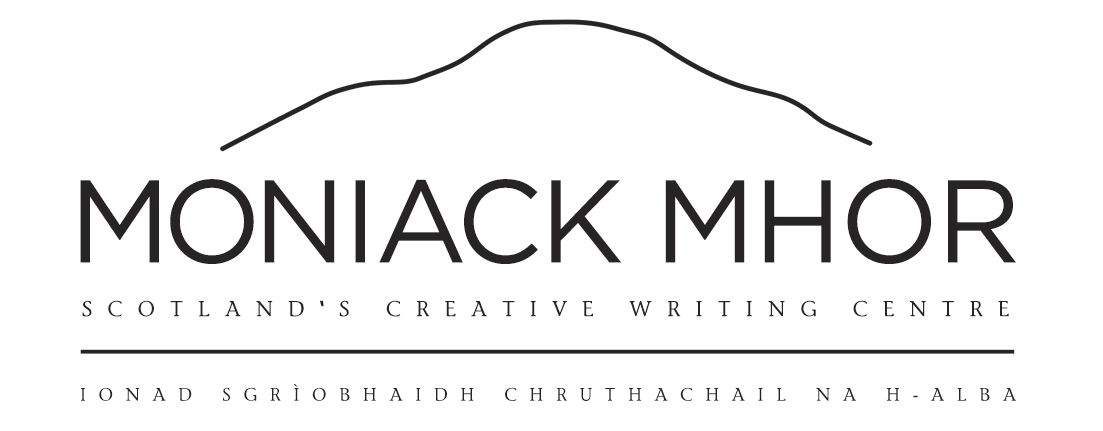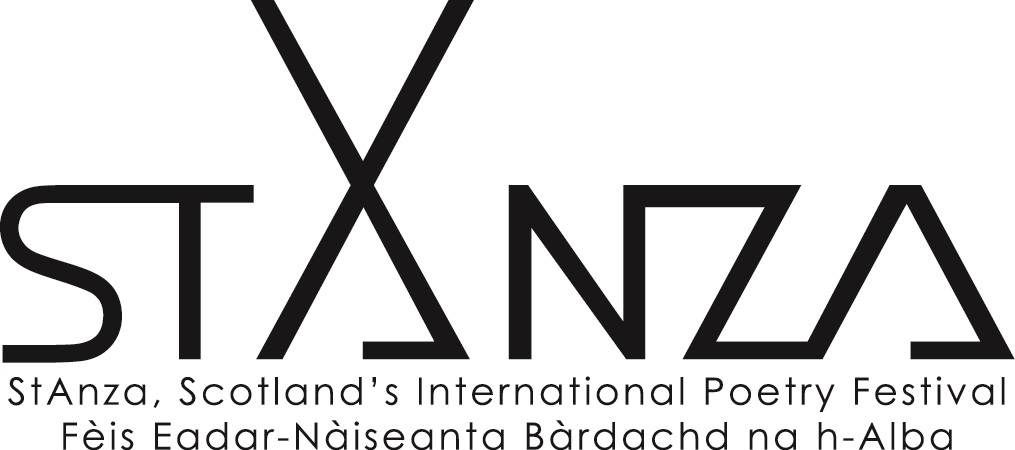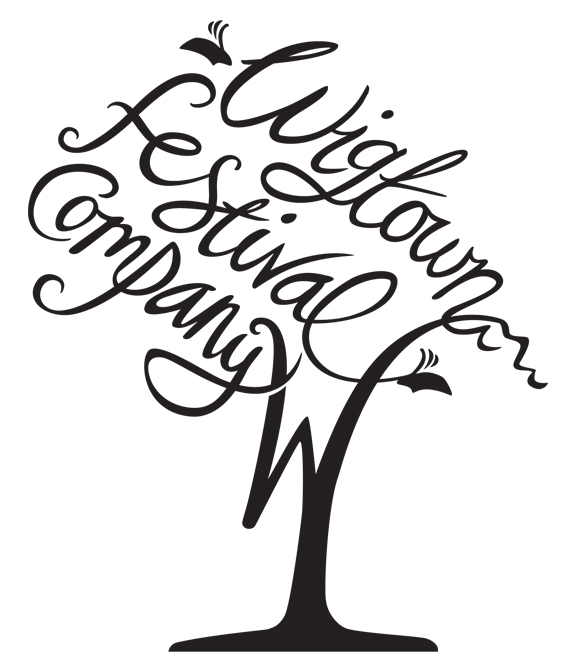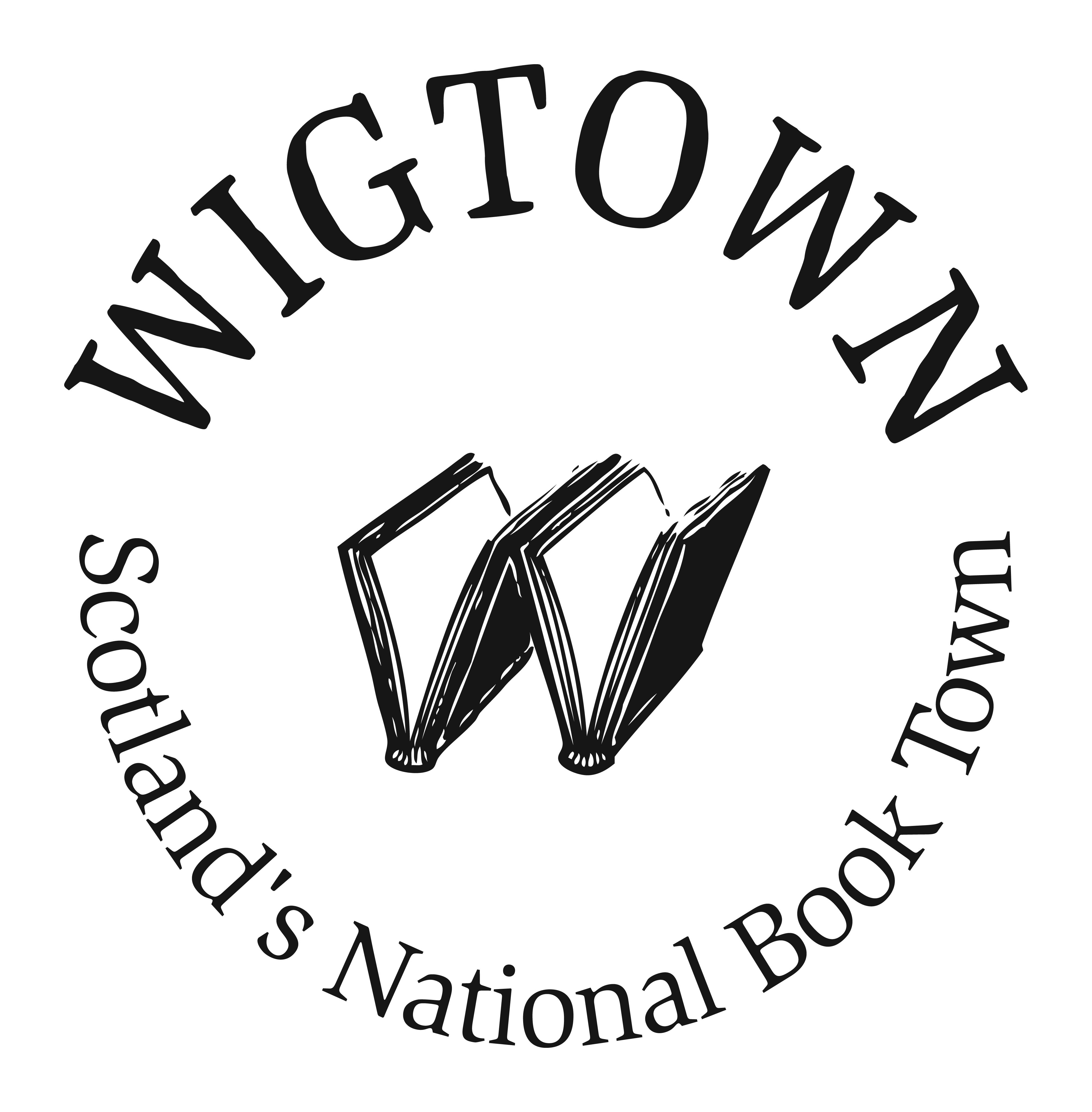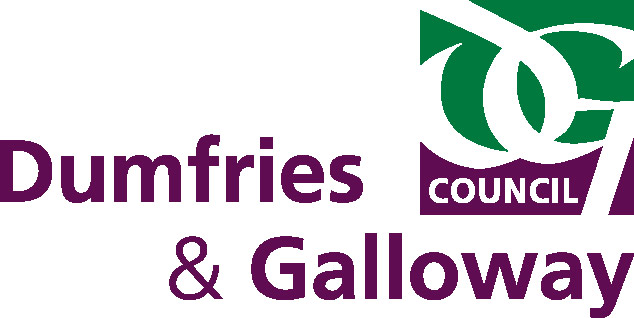Dumfries & Galloway Fresh Voice Award Winner | Carolyn Yates, Gaze
Wigtown Prize Winner | Basil du Toit, Mermaid Indoors
The human had unsettled her – his
breathing difficulties underwater,
the puckering of his fingertips,
stinging of his eyes, the raw fish diet
that didn't agree with his stomach.
Now, she was sitting in his house,
smelling like a shoreline that has
been baked rancid in the low tide,
the great flail of her tail-fin curled
awkwardly backwards out of sight.
Her body spread the coldness of
iceboxes or shipping containers;
elements of salt and ammonia
composed her presence, the rank
mephitic odour of a dying fish.
Her gaze was fixed and ankylose,
stiff cellulose, unblinking, bare,
hardened by the eye-withering
sharpness of ocean saltiness;
blue scales speckled the carpet.
She spoke with the sadness of
a sea animal which has laboriously
learnt the one-sided language
of men, incapable of addressing
the alien, disfigured half of her.
She spoke of dualities – natural
and supernatural, middle class
and beatnik, two circulations
(one where the blood ran cold)
mingling fish and mammal.
She exclaimed her wonderment
at soft warm towels, humidifiers
and scented candles from John
Lewis; but mostly she spoke of
that world given up to satisfy
her keen, occasional taste for men –
shoals of bonefish and barracuda,
the perils of propellor injuries
and dredge fishing, dark realms
of maelstrom, wreck and kraken.
Wigtown Prize Runner-up | Mark Gallacher, Byne Hill
in memory of Greig Campbell 1950-2021
To get to its summit, I had to run past my father’s grave.
A chastening arrangement. The headstones of strangers and near ones
laid out with a view to do die for: Ailsa Craig, Arran, the Holy Isle.
Greater markers planted on the horizon,
like witnesses of stone, watching the brief tides
of history, little more than crossing storms. Generations like ghosts,
briefly vibrant, then gone.
The flanks of the hill were fern clad. A thigh-high mesozoic
swill of dark green you had to wade through.
The fear of coiled adders hurried you up the hill.
Often on my runs, I did not linger long at the summit,
thinking movement and speed was what I hungered,
not the stillness of our silted town on the end of a slack river,
where nothing ever happened, unobserved. The churches. The pubs.
The fields tilled by time and hurt.
I have climbed much higher summits, and stared into
much bleaker graves since then. But my father’ was the first,
and taught me nothing could be done,
except to mourn.
To light torches and spit paint on cave walls
as good as any other art or ceremony
that pretended we could counter death with supernatural alchemy.
I do not paint or write. I run.
Run with me, if you can.
Run fast. Run strong.
And if I fall: run on.
Wigtown Scottish Gaelic Prize Winner | Eoghan Stewart, Dante air an C1144 agus U1207
a’ cur mo chùl air gach dòchas
’s ga fhàgail a’ grodadh san luachair
’s ann tro fhearann donn ’s odhar
fo bhrùid am foghar buan a ghluais mi
seachad air a liuthad gheataichean iarainn
chaidh mi gu siar, gu siar, gu ceann na h-ifrinne
ach gun bhàrd nam iùil tron talamh iargailt seo
a chainnt ga smaladh le rhodendrons sna dìgean
mar chnap de chabair as dèidh na seilge
càrn de gheugan ghlainne dealain
’s ri taobh na slighe a’ fèitheamh breitheanas
na deamhannan maola a’ dearcadh orm
suas, suas na cuibhlichean a’ dìreadh
gu balla a’ chuaich làn ùisge marbh
na carbadan le sùilean òra a’ prìobadh
ceud fear sna bacan fàs a’ cladhach
meur fuadan a’ chuaich, àite na caim bàine
chaidh mi tarsainn air an drochaid airgid
far an robh eilean na cloinne ga bhàthadh
’s tom allt nighean eòbhain ga chur fodha
an tig sian beò fo eas choire nan cnàmh?
far nach eil ach dìle is earchall?
far nach dèanar faire ach àlan
aig bun allt sgùrr a’ chlaidheimh?
nuair a làigh mo shùil air an iuthairn
chunnaic mi taighean, laimrig is staran
’s mi bàthte, baiste, fo innis na creige gun liut
aig coire shùbh air leac san abhainn
an t-allt sruthach, siùbhlach, sùbhach, bàn
an caochan coirbte, ciar, caorach tron bheàrn
an steall beucach, nuallach, dearcach, àrd
’s an rathad na aradh cam, gu loch beag a’ teàrnadh
ceann loch shùbhairne fada dubh dòmhainn
an aile mar thonn-mara, na ceapan sleamhainn
air slighe a’ chladaich gu sgiath àirigh
’s mi a’ siubhal fàsach fliuch nan gailleann
’s tro na sgàilean uisge o neàmh ag iomain
bha mo rùn ’s mo thoil a’ tionndadh mar chuibhle
aig an aon astar leis a’ ghràdh a thionndas
a’ ghrian ’s na reultan ’s mo chridhe ’s mo chuimhne
Wigtown Scottish Gaelic Prize Runner-up | Gillebride MacMillan, Glanadh
Ghlan mi sibh aig uair sa mhadainn
an oidhch’ ud:
Làmhan ri phasgadh
Sùilean a dhùnadh
Casan a chur dìreach
Ceann a chur air cluasaig
An dèidh dhuibh sìoladh sìos,
Anail a’ crìonadh: sgìths a’ dol gu sìth.
Ghlan mi sibh aig uair sa mhadainn
An oidhch’ ud:
Beul ri dhùnadh
Gruag ri chìreadh
Ceann a chur dìreach
Deiseil airson ur turais a-nis.
Dìreach mar dh’iarradh sibh.
-Washing
I washed you that night
at 1am:
hands folded
eyes closed
legs straightened
head placed on pillow,
After you slowed to a whisper
Breath shortening; tiredness turns to peace.
I washed you that night
at 1am:
mouth closed
hair combed
head upright.
Ready for your journey now,
Just as you would have wanted.
Wigtown Scots Prize Winner | Robert Duncan, Peeweep
Roun by the Swans’ Pond,
up ower the Tollie Hill,
ayont the piggery,
atween the tumshie fields,
throu the harebell wuids,
aa the wey tae the pit
he walkit the Peeweep Road
wi birdsang in his lugs.
‘Pi-rip, pee-weep,
‘pi-rip, pee-weep,
‘pi-rip, pee-weeep.’
Some fowk tweetiesheed it,
caaed it the Covenanters’ bane,
but tae him the peeweep’s sang
soundit like freedom’s cry,
‘Let’s flee awa,
let’s flee awa!’
Abune Loch Fitty Burn
the Peeweep Pit nestit
like a black craw on a hill.
Yin last keek at the lift
and the squad gat in the cage
cairryin the canary.
He thocht again what a bleck it was
that a bird cuid sing in a cage.
As they holit a seam
o Lochgelly parrot,
on a suddenty
the bird quat singin.
“Quick, boys, the bye-road
tae Lumphinnans Number Wan!”
Under the harebell wuids,
the tumshie fields,
the piggery,
the Tollie Hill,
the Swans’ Pond,
they bure the deid bird.
A mile abune their heids
the haill length o the road
the peeweeps sang.
Wigtown Scots Prize Runner-up | Lynn Valentine, Thi Loast Bairn
Thair ir meenits ma dochter wull wauk mi
in thi nicht wi hir girnin; a loup roon the room
an roon agin, girnin fir the mither wha couldnae
let hir see licht, couldnae let hir be born
Is this a tod then, a vixen circlin thi yaird?
A Reid Kite blawn aff coorse intae derkness?
A pit ma fist in ma moo tae stoap ma shriekin.
A wullnae blait like a sheepie fir a lamb—
wullnae own ma voice fir air thit’s ower shairp—
fir blank stanes aneath snaw.
Alastair Reid Pamphlet Prize Winner | Jane McKie, Jawbreaker
(Title Poem)
A pile of dirty-cream clothes, lies in ribbons and folds –
what was her skin. She must be cold, but new, glistening
with possibility. I gather the rucked-up pelt, struck by its musk,
then find the furred mask of her cherished snout, the teeth
huge and tipped with blood where, once upon a time,
she tore into me. My jawbreaker. I’ll soak them in a weak
solution of bleach, rinse them with care, in case she asks
to be clothed again in the disordered ways of a starving bear.
Dumfries & Galloway Fresh Voice Award Winner | Carolyn Yates, Gaze
(Title Poem)
She’s looking at you looking at her, the way
your eyes skitter over her face, locate
somewhere between belly and thigh.
She’s listening to your breath susurrating
tongue and palate, your mouth a puckering gasp.
She holds her Boadicea pose,
knows your discomfort, sees you shift your weight.
She stands astride an invisible tiger.
Her red-maned, just -you- dare stare
skewers you through. There is nothing demure here,
no filmy gauze or seven veils conceit.
So hide that smile when she bares her teeth, snarls
her pebble-spittle in your face, brings you down into disgrace.
